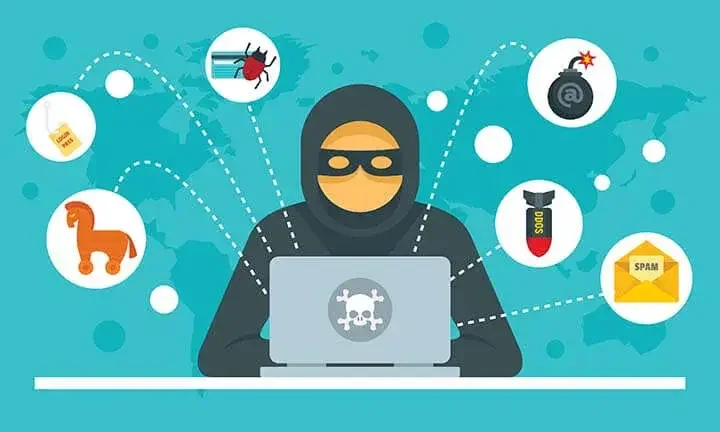Between early March 2020 and the end of July 2020, the Federal Trade Commission (FTC) received almost 79,000 COVID-19-related fraud reports. The bulk of this activity, which led to consumer losses of more than $97 million, involved online orders that were never delivered or travel cancellations, but a new crop of scams is also on the rise.
Experts offer these four tips to help protect yourself—and your bank account.

1. Get up to speed on current COVID-19 scams
Protecting yourself starts with understanding current scams. According to Transaction Network Services (TNS), which analyzes more than 1 billion calls each day across telecom networks to identify robocaller trends and tactics, the top phone call and text scams involve:
- Contract tracing
- Stimulus checks
- Fake cures
- Test kits, masks, and personal protective equipment
While senior citizens are popular targets for scammers, nobody's immune—even recent college graduates.
"Students and their parents should keep in mind that student loan forgiveness is not offered over the phone, is rarely granted, and requires an application from the student," says Bill Versen, chief product officer at TNS.
2. Be suspicious of unrecognized messages and calls
In fact, be suspicious in general. Hackers and scammers are getting so good at posing as legitimate people and businesses that even normally alert and savvy consumers can be fooled.
Click on a link in a "phishing" email from a company that looks like one you do business with—your bank or Amazon, for example—and you could release a virus that steals information from your computer or smartphone.
"To avoid these types of scams, never open an email that you don't recognize, has an abnormal email address, or includes misspelled words," says Mason Miranda, credit industry specialist with Credit Card Insider. Delete the message or, if you've clicked on a link, leave the website immediately.
In addition, rather than return a phone call about a so-called problem to the number left in a message, look up the organization's phone number online and use that to respond.
3. Never enter your email and password into an unfamiliar website
Versen reports that one sophisticated COVID-19 scam lures smartphone users to a realistic-looking Internal Revenue Service (IRS) website. There, victims are instructed to enter personal information to receive their stimulus check. After the fake site captures that data, it redirects the user to the real IRS website.
"This is just the latest of many coronavirus stimulus scams. It is important to remember that you would not receive a call or text requesting personal information—or money—to receive a government stimulus check," he says.
Cybersecurity expert Darren Deslatte adds that slick-looking phishing emails are often from fake charities claiming to provide medical care or school supplies to low-income children.
"When directed to these websites, you are often asked to enter credentials such as your email address and password—an immediate sign that this company may be fraudulent," says Deslatte, vulnerability operations leader at Entrust Solutions, a technology services provider.
4. Do your research before pulling out your credit card
Popular scams involve companies you've never heard of trying to sell coronavirus cures or products that will protect you. It's best to ignore them but you should at least research the organization before donating or buying.
"Read online reviews, as most reputable businesses have been around for a while and have a track record of successfully delivering products and services to their customers," says Pauline Manu, consumer advocate manager at Sitejabber, a consumer protection site backed by the U.S. government's National Science Foundation. "If they are a scam company, there may already be reviewers warning others."
Manu also recommends checking site privacy seals and certifications, which are often located at the bottom of websites.
Finally, regularly monitor trusted information sources such as the Centers for Disease Control and Prevention, the World Health Organization, and the FTC regularly. The first two provide disease and treatment updates, while the FTC tracks scams and offers advice designed to help keep you and your money safe.

